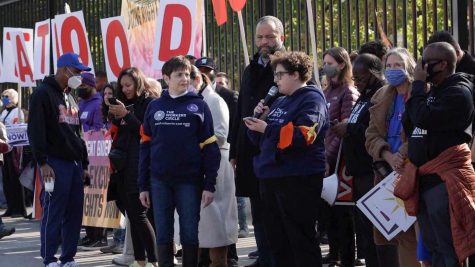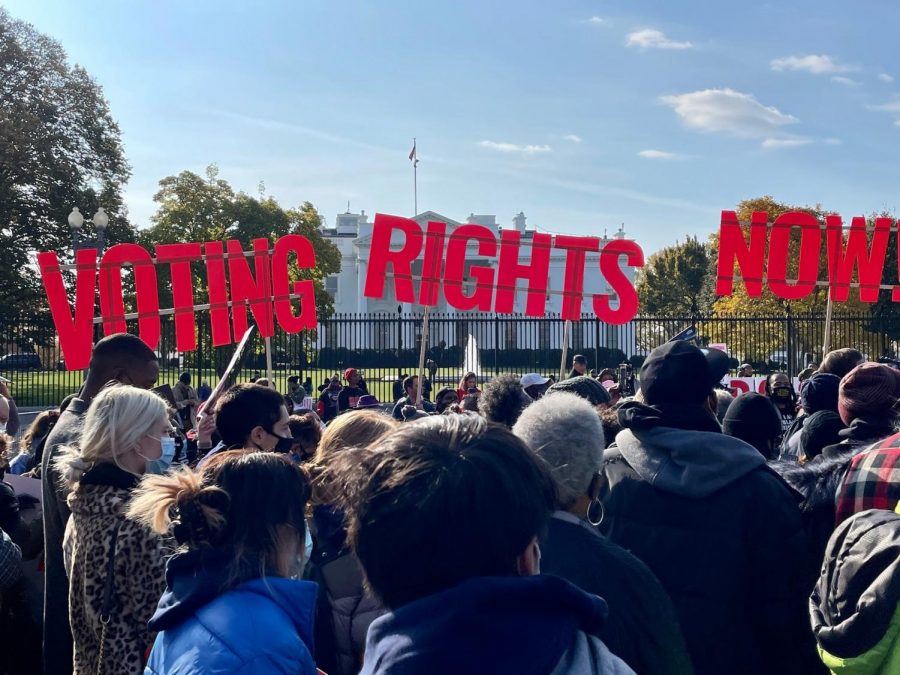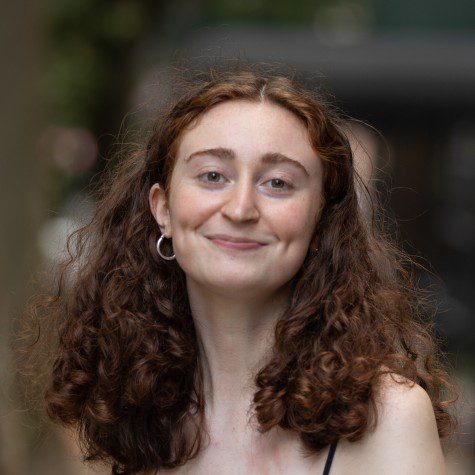More NYU students arrested for voting rights protest outside White House
A group was arrested for civil disobedience in Washington, D.C., while demanding the Biden administration pass federal voting rights legislation.
Ten NYU students and one professor were arrested for civil disobedience in Washington D.C. This is the second time in three weeks that an NYU group blocked pedestrian traffic outside of the White House. (Image courtesy of The Workers Circle)
November 18, 2021
Ten NYU students and one professor were arrested for civil disobedience in Washington, D.C., on Nov. 17. This was the second time in three weeks that an NYU group blocked pedestrian traffic by refusing to move from a sidewalk in front of the White House.
The students and professor were demanding that President Joe Biden pass federal voting rights legislation and eliminate the Senate filibuster. They attended as part of The Workers Circle, a Jewish nonprofit advocating for social and economic justice, in their fight for the enactment of the Freedom to Vote Act and the John Lewis Voting Rights Advancement Act.
The group worked alongside other organizations to bring 300 demonstrators to Lafayette Square, located across the street from the White House, where approximately 150 people were arrested.
“The process of protesting and trying to challenge something is not very linear and straightforward,” CAS senior Merly Lopez, who was arrested at both demonstrations, said. “We want to make it known that we’re going to do whatever it takes and show up as many times as it takes to make a point about what we believe in.”
The protest comes two weeks after Senate Republicans blocked debate of the John Lewis bill, which would restore the Voting Rights Act of 1965 weakened by the Supreme Court. It marks the most recent string of demonstrations held close to the White House since Oct. 5.

As of September 2021, at least 19 states have passed 33 laws to restrict voting access, according to NYU Law’s Brennan Center for Justice. CAS junior Luc Giner, who was also part of the group, said it is as important to advocate for voting rights now as it was before the 2020 presidential election.
“Biden may not be as overtly hostile to voting rights as Trump was, but his current level of inaction and his unwillingness to enact systemic reform is still extremely dangerous,” Giner said. “The current state of voting rights in this country is really due in large part to student organizers in the 1960s, and John Lewis was one of them. College students have historically played a really large role in this fight, and it’s important for us to continue that.”
Following the first two protests, Biden said on Oct. 21 that he was open to eliminating the filibuster in order to pass the two voting rights acts. In a letter sent on Nov. 14, Senate Majority Leader Chuck Schumer urged other Democratic senators to advance the bills before the end of the year.
LS sophomore Leah Parrott, who was also part of the group arrested, said she believes both bills are common-sense reforms.
“We’re not fighting for one side of an issue,” Parrott said. “We’re trying to make this place better for everyone. If we get rid of the filibuster, then we can also advance other reforms.”
Students Noa Baron, Michael Chumpitaz, Vivien Guo, Josh Horowitz, Ariana Juarez, Lauren Jeffery and Jasmine Prophete, as well as Noelle Damico, Wagner adjunct professor and director of social justice at The Workers Circle’s, attended and were arrested. Baron, a CAS senior and organizing and voting rights intern at The Workers Circle, said the NYU group plans to attend further demonstrations until both bills are passed.
Contact Rachel Cohen at [email protected].




























































































































































